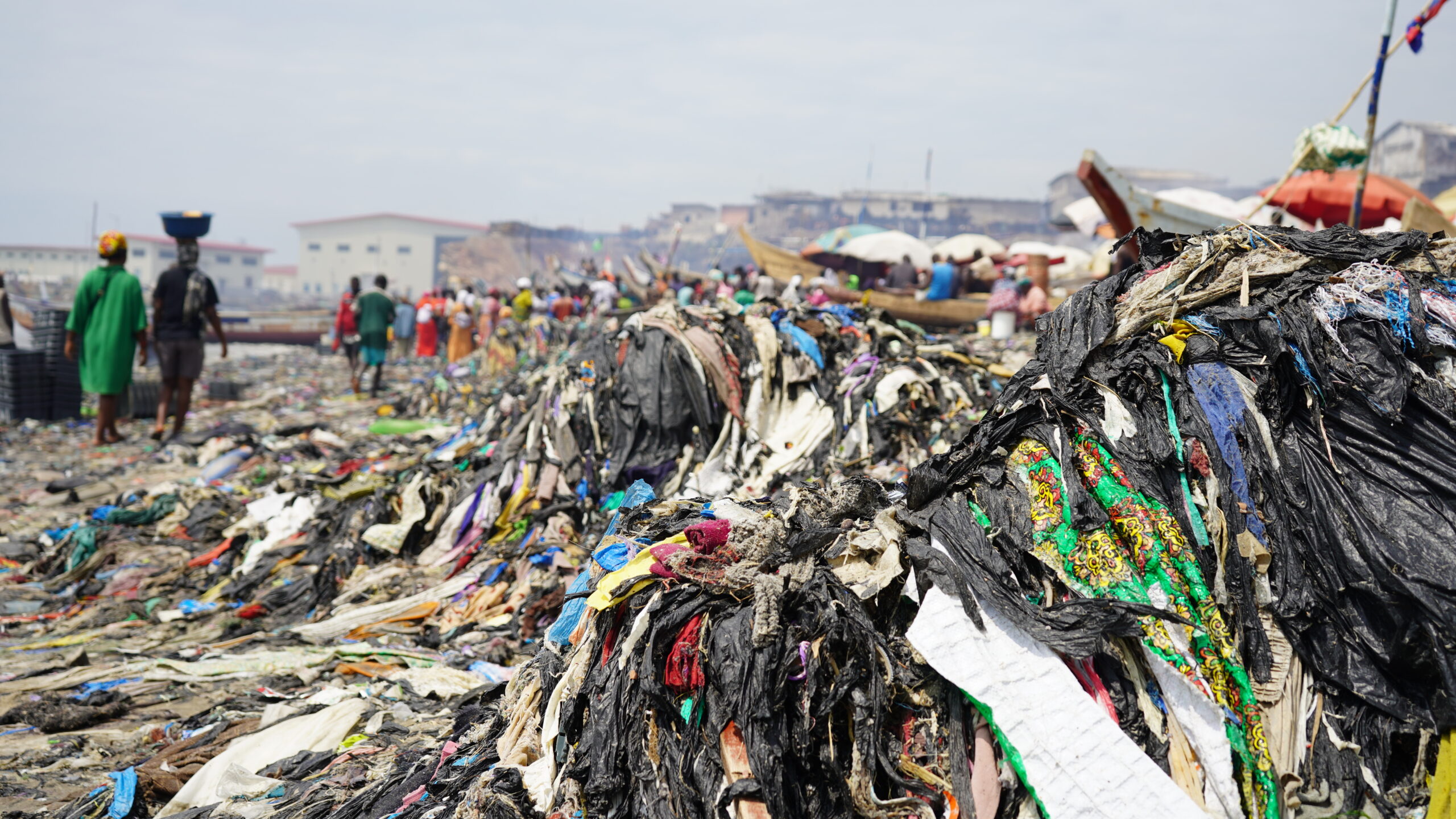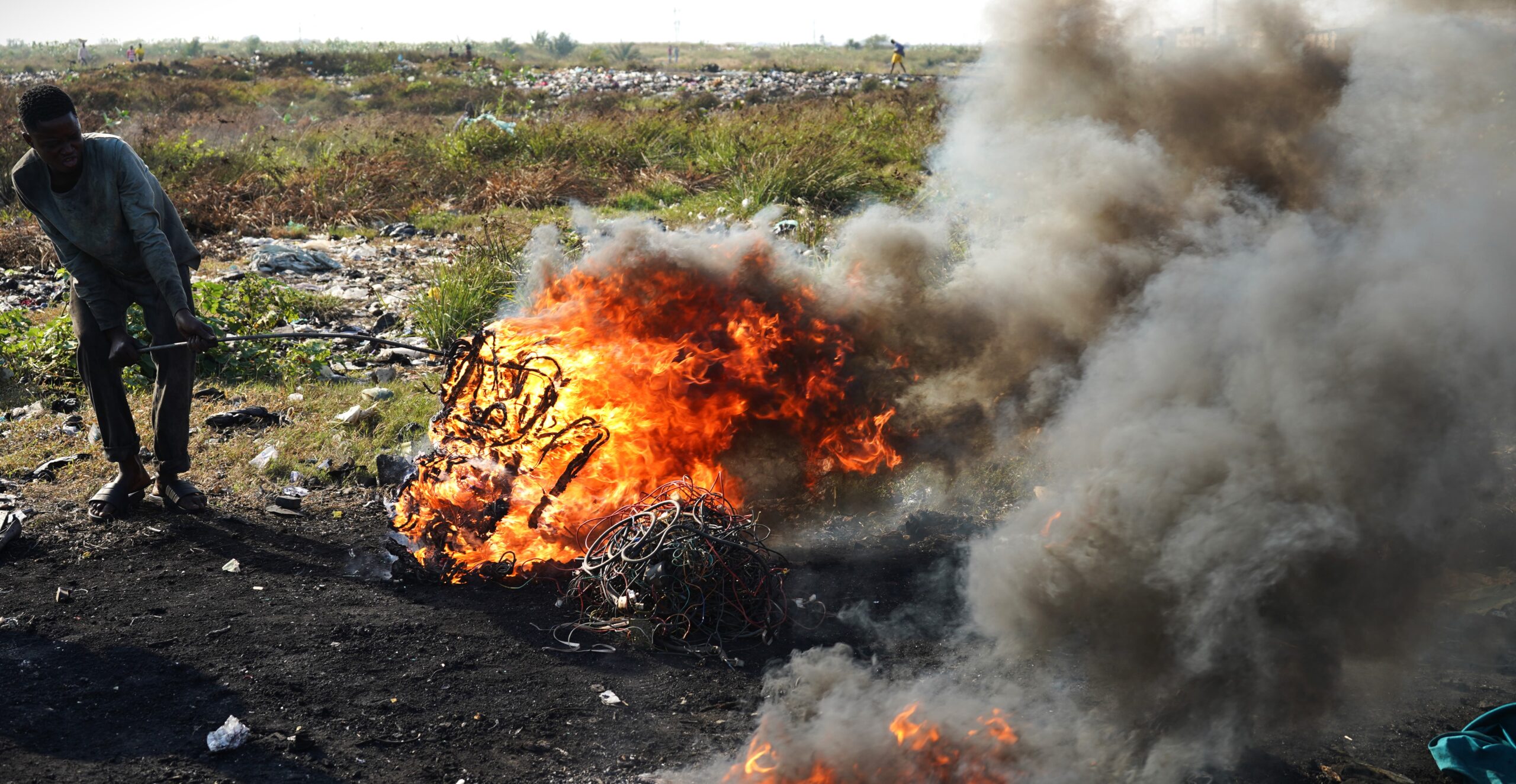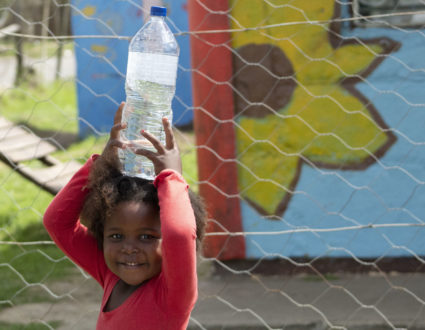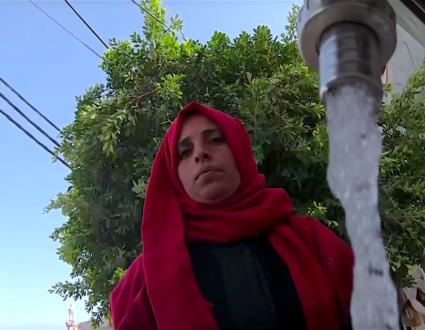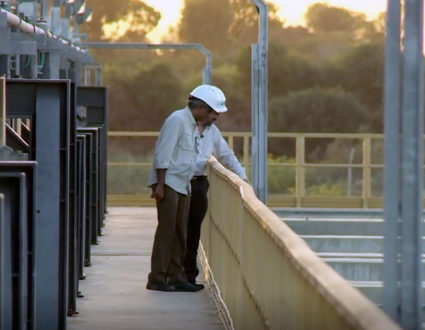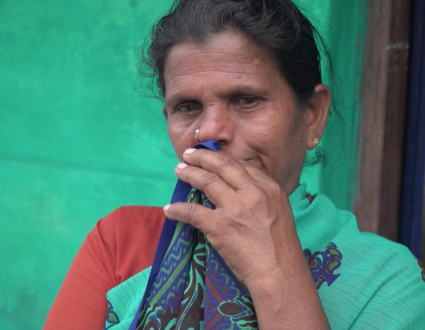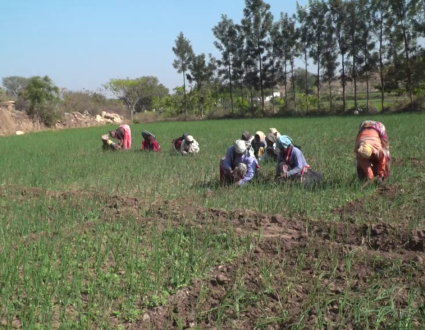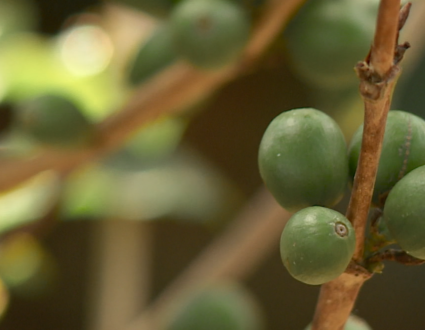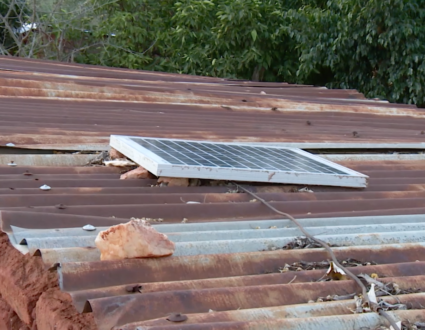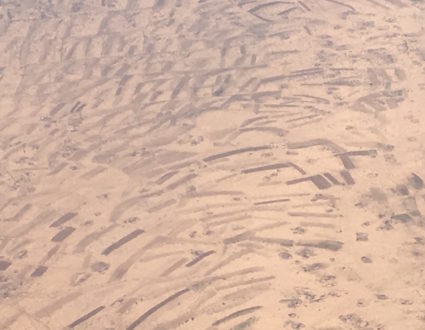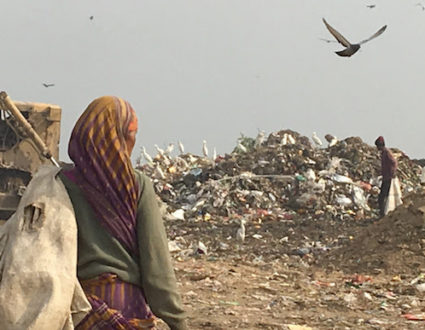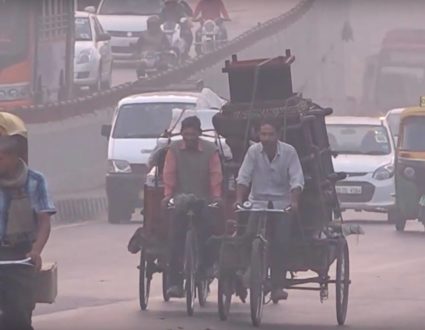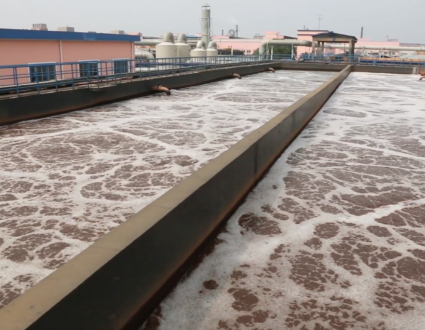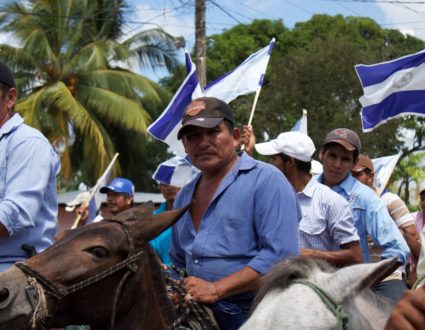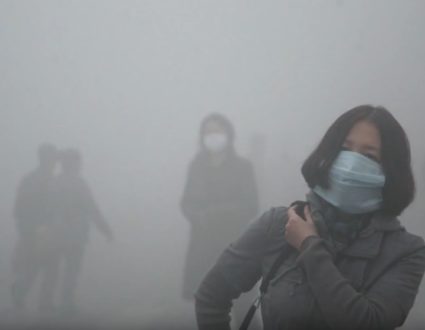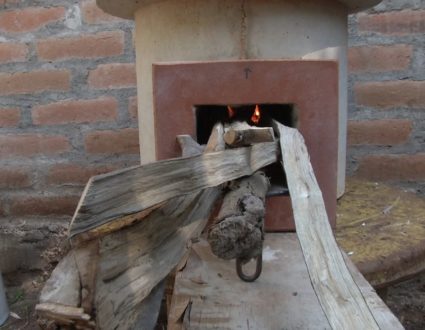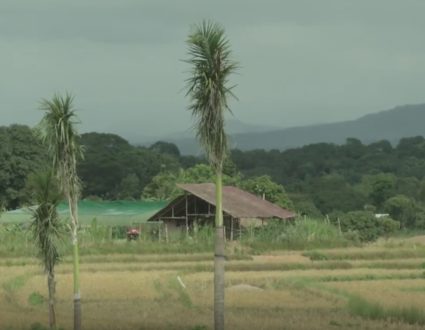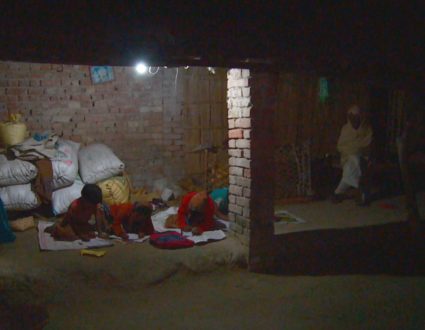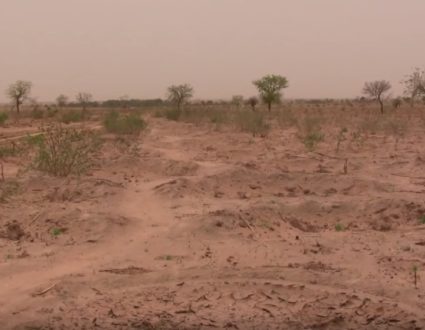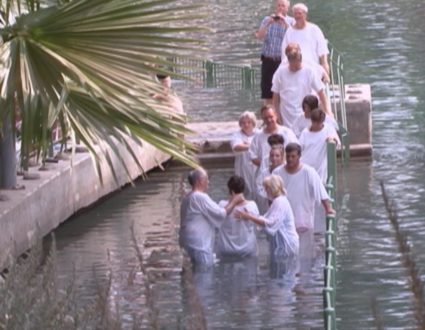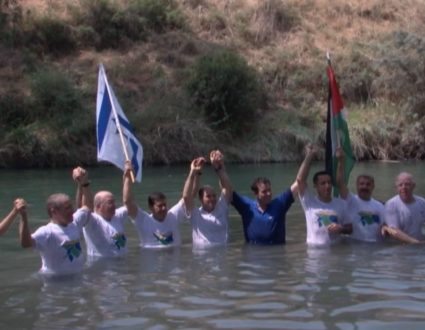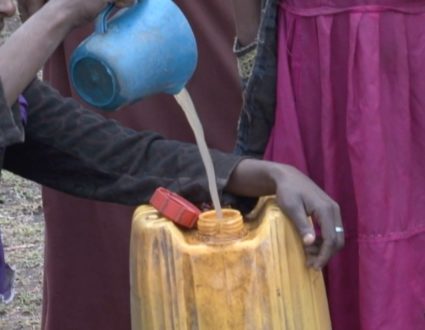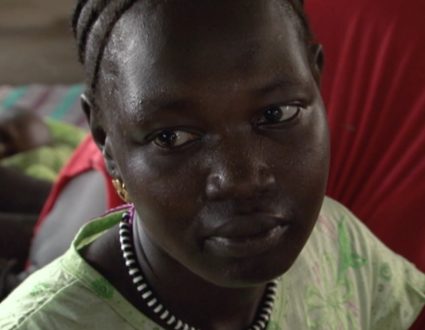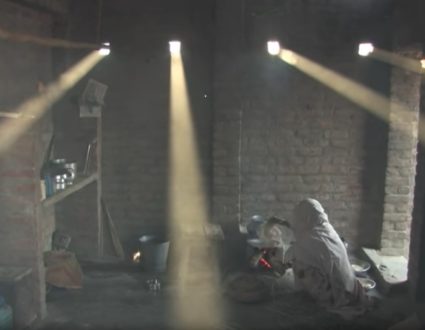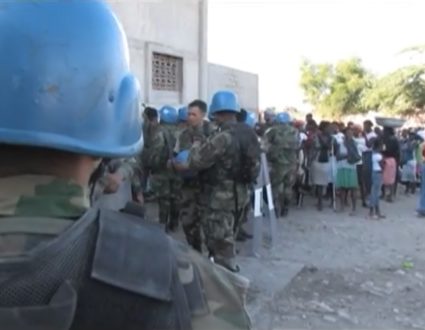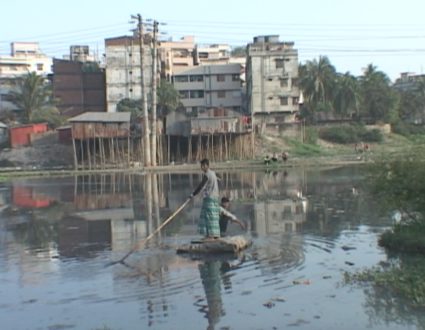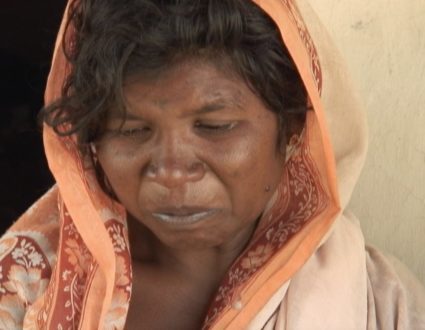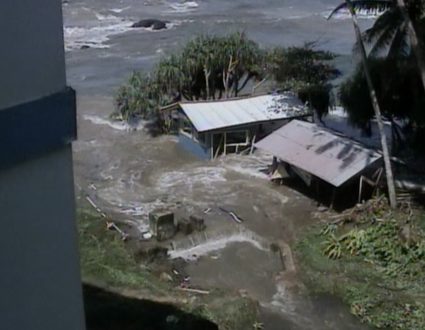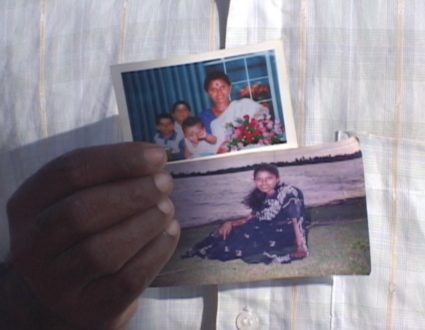- Judy Woodruff: Leaders from African countries are meeting this week in Gabon, trying to come up with strategies to combat climate change. The toll from extreme weather has devastated vast regions of sub-Saharan Africa, suffering from the worst drought conditions on record and a severe food crisis. Correspondent Fred de Sam Lazaro looks at one effort to help farmers affected by changing weather patterns. This story is produced in partnership with the Pulitzer Center.
- Fred de Sam Lazaro:Like much of East Africa, South Sudan has suffered scorching droughts. Yet, in an cruel twist, many parts of this country are actually still inundated from flooding late last year.
- Nhial Tiitmamer, The Sudd Institute:What has happened in the last three years in South Sudan has never been seen in living memory.
- Fred de Sam Lazaro:Nhial Tiitmamer is a climate scientist based in South Sudan’s capital, Juba.This country has been ravaged by war before independence in 2011, civil conflict since then, and erratic weather. Flooding added hundreds of thousands of climate refugees to those fleeing conflict. About two million people live in squalid camps. The country faces an acute hunger crisis.So, the fields, as you can see, are pretty waterlogged already. And we’re told that the rains have not really arrived in earnest.Just outside the northern city of Malakal, we visited farmers laboring on and preparing their fields, investing as much in hope as any harvest.
- Nyanakim Achuiel, Farmer (through translator):We grow okra, collard greens, maize and cassava, but, because of all the water, most of these things are not going to be planted.
- Fred de Sam Lazaro:Nyanakim Achuiel belongs to a women’s garden group organized by the Christian humanitarian group World Vision.
- Nyanakim Achuiel (through translator):We have seen a lot of changes in the weather compared to the years before. And our output has been very low.
- Fred de Sam Lazaro:Scientists see a much longer trend. Across East Africa, average temperatures have risen a full degree Celsius, 1.8 degrees Fahrenheit, over the past 50 years, making for hotter dry seasons and wetter rainy ones, the drought-baked soil unable to absorb water fast enough to prevent flooding.
- Nhial Tiitmamer:Much of the water that is in East Africa here in the region is from the Indian Ocean. The Indian Ocean is one of the most warming oceans in the world. And because of this warming, there is a lot of evaporation that is bringing rain to East Africa.
- Andrew Youn, Co-Founder, One Acre Fund:From a global perspective, the Intergovernmental Panel on Climate Change has noted a one-third reduction in yields as a result of climate change over the last 60 years.
- Fred de Sam Lazaro:Andrew Youn founded the Kenya-based One Acre Fund, a nonprofit that helps farmers in several African nations produce more and adapt to the changing climate.Small farmers make up the majority of the world’s poor, Youn says, yet little is being done to help them.
- Andrew Youn:Less than 2 percent of climate finance goes to farmers. It’s just absolutely crazy that one of the most affected populations in the world, one of the most vulnerable populations in the world, and there’s — it’s like they don’t even exist as part of the climate dialogue.And there’s lots of really actionable, scalable, cost-effective things that we can do.
- Fred de Sam Lazaro:One Acre Fund serves about 1.4 million farmers who’ve signed up for its program. That size allows it to buy good quality seeds and fertilizers at bulk discounts, which are passed on to farmers, along with credit to purchase these resources.And, if a crop fails, there’s limited insurance through loan forgiveness. And the group educates farmers, providing critical expertise. Hundreds of field agents, like Marie Claire Mugeni in Eastern Rwanda, advise on how to space seeds, the right doses of compost and fertilizer, and the best time to plant.
- Immaculee Mukamana, Farmer (through translator):They taught us how to properly use fertilizers and how to apply lime in the field for acidity.
- Fred de Sam Lazaro:Fifty-three-year-old Immaculee Mukamana says her maize crop yields doubled when she first joined One Acre Fund two years ago. But after this year’s drought, she has very little food left in reserve.
- Immaculee Mukamana (through translator):I was expecting more than 660 pounds of maize. I got just 88.
- Fred de Sam Lazaro:To help survive lean years, One Acre Fund is now pushing members to diversify, to grow more than one compatible crop in the same field, for example, or grow specialty crops like vegetables.Protais Barushwanubusa had a poor crop of maize and potatoes this year. But with bumper harvests a year earlier, he had savings. He purchased a diesel pump, which now waters an abundant field of vegetables he will sell in nearby markets insurance, against another sparse grain or potato crop.
- Protais Barushwanubusa, Farmer (through translator):I’m currently growing tomatoes, green peppers, and eggplants. Before, I could grow these vegetables, but not at a large scale. But since I now have this pump, I use it to irrigate even during dry season or when there is no rain.
- Fred de Sam Lazaro:Another climate-driven initiative here is planting a billion trees on farmers’ lands. Other such campaigns have been difficult to sustain.But One Acre Fund says its focus is on the economic benefits, as much as environmental, using trees that can provide wood or fruit. At the edge of the tree nursery is a demonstrator model, if you will, that should clinch the deal with any reluctant farmer. This 2-year-old avocado tree is already about 10-feet tall. It’s already bearing fruit, and in one year will be considered full-grown, and at that stage is expected to bear something like 600 pounds of avocado each season.
- Andrew Youn:When farmers sell those avocados, if they’re not able to find markets, they can eat them. And avocados are obviously wonderful for child nutrition. And then, of course, there’s a modest carbon benefit, because that tree is never cut down.
- Fred de Sam Lazaro:It sounds good in theory, but:
- Immaculee Mukamana (through translator):The trees I got, they died.
- Fred de Sam Lazaro:The real world is where farmers like Immaculee live. The drought forced her to take a job far from her field, she says, and water was scarce.
- Milindi Sibomana, One Acre Fund:So, what we’re doing now with the avocados, we’re delivering them a bit more mature than we did in the past.
- Fred de Sam Lazaro:Milindi Sibomana heads research and development for One Acre in Rwanda.
- Milindi Sibomana:So, they will need slightly less care, not no care, but slightly less care.
- Fred de Sam Lazaro:It’s learning as you go, he says, with feedback from farmers and results from research plots like these.
- Milindi Sibomana:We test the product here before we scale it.
- Fred de Sam Lazoro:This maize plot was planted in late March, too late, it turns out, because the rains came and ended earlier than usual.
- Milindi Sibomana:It didn’t cob well. There’s no grain on it.
- Fred de Sam Lazaro:A failed crop, but that’s how these test plots offer data on what to plant, where, and, based on weather forecasts, when.
- Milindi Sibomana:We try and capture as many variations in conditions. If you use the right fertilizer, if you use the right practices, this is the crop that you’re going to get from it.
- Fred de Sam Lazaro:The average yield on One Acre Fund farms has increased 40, a solid buffer that can help them cope with the changing climate, says Andrew Youn, a Minnesota native who’s lived in East Africa since 2006.
- Andrew Youn:The actionable solutions are there. They’re cost-effective. They’re scalable. It’s not like you need to invent fusion or anything like that. It’s ultra-simple. All we need are resources.So, that’s what I call a kind of a just add water-type situation.
- Fred de Sam Lazaro:A metaphor in policy terms, though, for millions of drought-stricken and flooded African farmers, a prayer: Just add water, not too much, not too late.For the “PBS NewsHour,” I’m Fred de Sam Lazaro in Malakal, South Sudan.
- Judy Woodruff:And a reminder that Fred’s reporting is in partnership with the Under-Told Stories Project at the University of St. Thomas in Minnesota.
Predictably Unpredictable
extreme weather devastates farm outputs
The toll from extreme weather has devastated vast regions of sub-Saharan Africa, suffering from the worst drought conditions on record—and a food crisis that ranges from severe to catastrophic. This report looks at one effort to help farmers cope with weather that’s widely predicted to remain unpredictable.
2%
or less of climate finance goes to farmers

Waterlogged fields prevent planting
and more rain is still expected to fall
Nhial Tiitmamer, The Sudd Institute
“What has happened in the last three years in South Sudan has never been seen in living memory.”

Across East Africa
average temperatures have risen 1.8 degrees Fahrenheit, over the past 50 years
Farm yields
have seen a one-third reduction as a result of climate change over the last 60 years.
The Intergovernmental Panel on Climate Change

One Acre Fund
is one attempt to address the crisis by training farmers to adapt to the changing climate

Andrew Youn, One Acre Fund
The actionable solutions are there. They’re cost-effective. They’re scalable. It’s not like you need to invent fusion or anything like that. It’s ultra-simple. All we need are resources.So, that’s what I call a kind of a just add water-type situation.”



